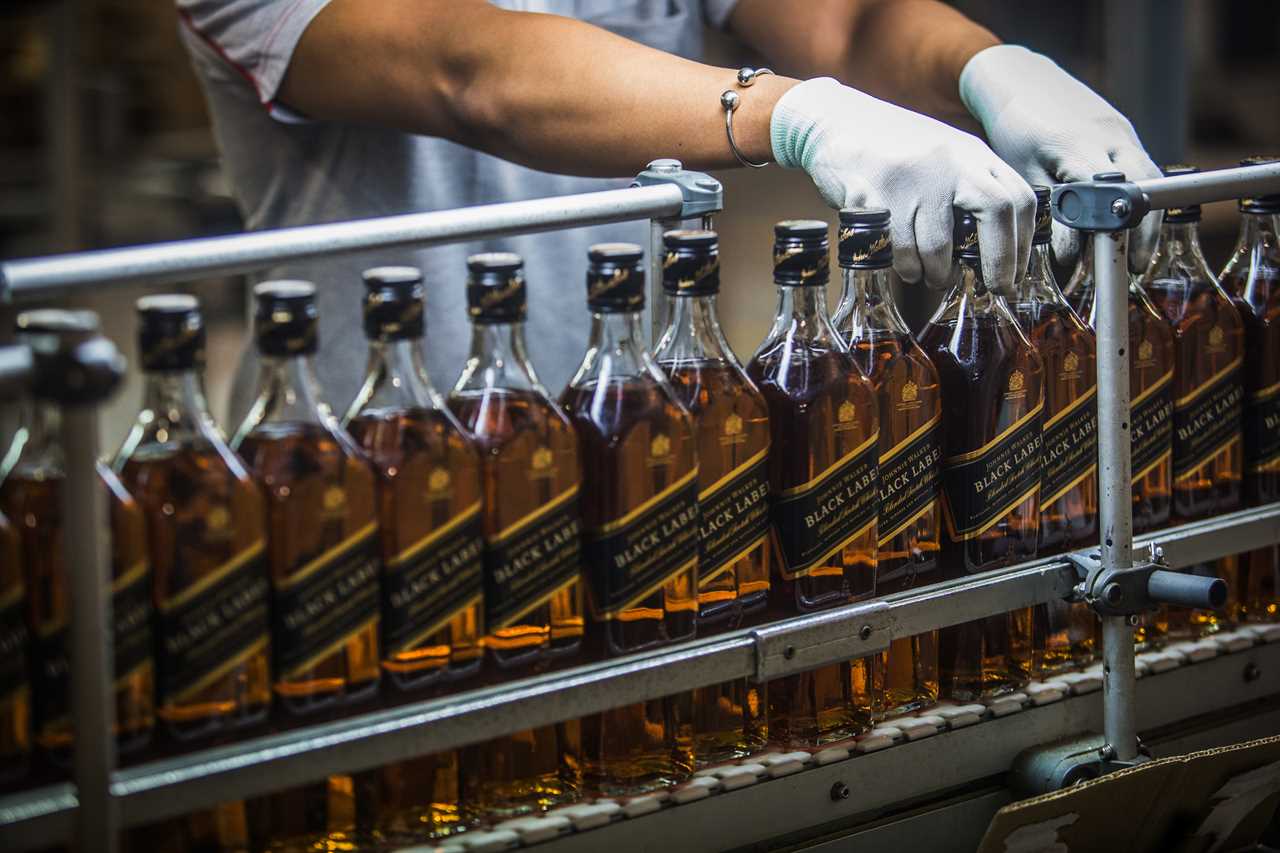SCOTCH whisky makers have called on the Tory leadership wannabes to cancel a near double-digit tax increase this autumn.
Half of distillers have seen their energy costs double in the last year.

The Scotch Whiskey Association wants Rishi Sunak and Liz Truss to cancel a proposed double digit tax hike on the drink in Autumn
Meanwhile, 72 per cent are expecting shipping costs to double in the next 12 months.
The calls from the UK’s number one food and drink export come as Liz Truss and Rishi Sunak head to Scotland today.
Seventy per cent of the cost of a bottle of Scotch is currently claimed in tax with UK duty on spirits being the highest in the G7.
Unless the next Chancellor explicitly rules out “planned increases” on duty then there will be an automatic uplift of around nine per cent.
Mark Kent, Chief Executive of the Scotch Whisky Association, said: “The industry is delivering much needed growth for the UK economy through investment, job creation and rising revenue to the Treasury.
“But this survey reveals that distillers are investing in growth despite the economic headwinds and rising costs on business.”
The wannabe PMs will battle head to head tonight in Perth at the seventh of 12 hustings.
The issue of protecting the Union and fighting nationalists will be high on the agenda.
In a bid to woo Scottish Tories, Ms Truss has vowed to slash crippling 150 per cent tariffs on Scotch Whiskey in India, and promised never to “let anyone talk down Scotland’s potential”.
The Foreign Secretary would dish out new powers to hand Parliamentary privilege to the Scottish Parliament to properly scrutinise the SNP after years in power.
Mr Sunak pledged to force the Scottish Government to explain how it spends UK taxpayer cash.
The ex-Chancellor would drag top Scottish civil servants down to London to attend UK Parliament select committee hearings – and force his own team of UK ministers to make more trips north of the border.
Under Mr Sunak’s plans, the Scots Gov would also be made to explain how they spend UK taxpayer cash and provide evidence that it’s delivering for schools and the NHS – rather than relying on their own selective data.






